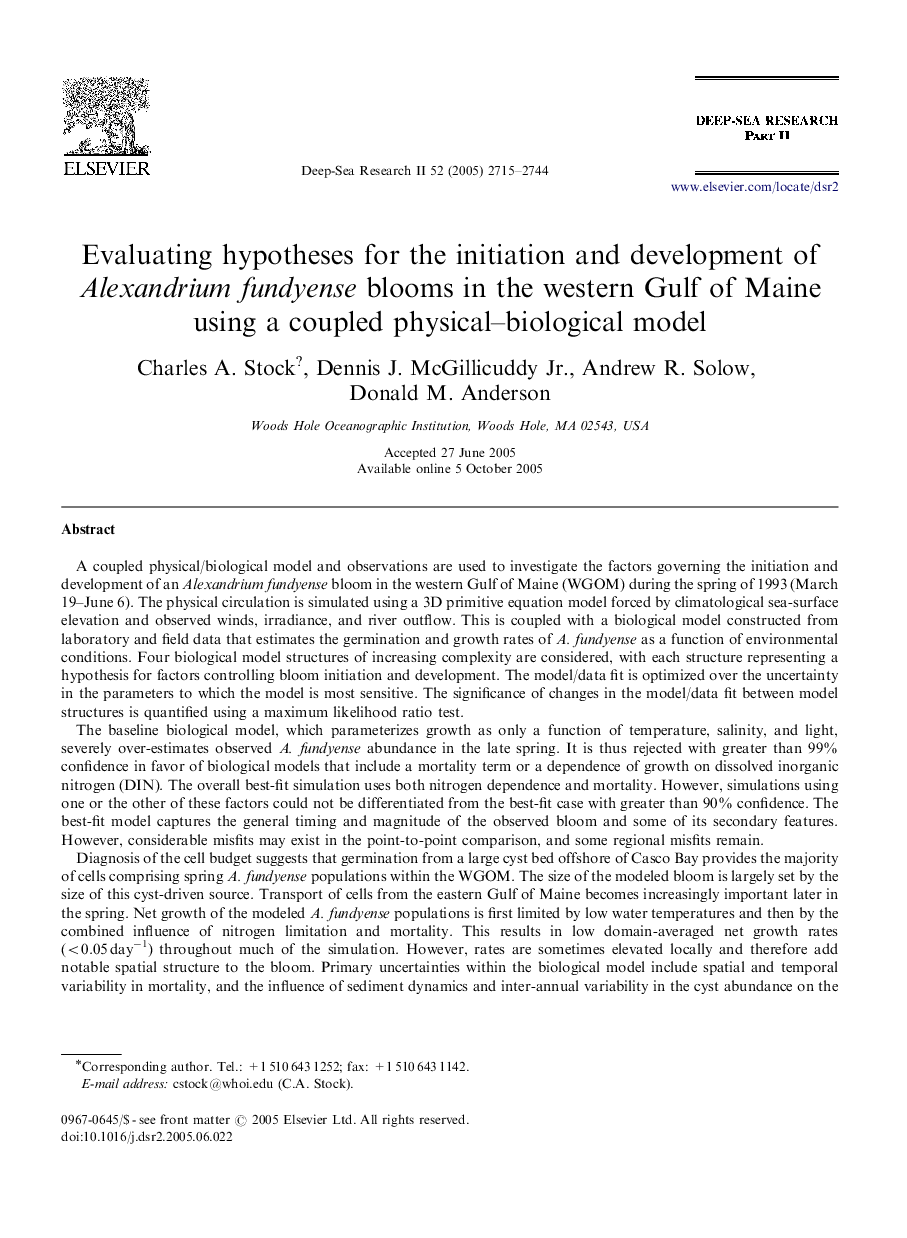| Article ID | Journal | Published Year | Pages | File Type |
|---|---|---|---|---|
| 4538591 | Deep Sea Research Part II: Topical Studies in Oceanography | 2005 | 30 Pages |
A coupled physical/biological model and observations are used to investigate the factors governing the initiation and development of an Alexandrium fundyense bloom in the western Gulf of Maine (WGOM) during the spring of 1993 (March 19–June 6). The physical circulation is simulated using a 3D primitive equation model forced by climatological sea-surface elevation and observed winds, irradiance, and river outflow. This is coupled with a biological model constructed from laboratory and field data that estimates the germination and growth rates of A. fundyense as a function of environmental conditions. Four biological model structures of increasing complexity are considered, with each structure representing a hypothesis for factors controlling bloom initiation and development. The model/data fit is optimized over the uncertainty in the parameters to which the model is most sensitive. The significance of changes in the model/data fit between model structures is quantified using a maximum likelihood ratio test.The baseline biological model, which parameterizes growth as only a function of temperature, salinity, and light, severely over-estimates observed A. fundyense abundance in the late spring. It is thus rejected with greater than 99% confidence in favor of biological models that include a mortality term or a dependence of growth on dissolved inorganic nitrogen (DIN). The overall best-fit simulation uses both nitrogen dependence and mortality. However, simulations using one or the other of these factors could not be differentiated from the best-fit case with greater than 90% confidence. The best-fit model captures the general timing and magnitude of the observed bloom and some of its secondary features. However, considerable misfits may exist in the point-to-point comparison, and some regional misfits remain.Diagnosis of the cell budget suggests that germination from a large cyst bed offshore of Casco Bay provides the majority of cells comprising spring A. fundyense populations within the WGOM. The size of the modeled bloom is largely set by the size of this cyst-driven source. Transport of cells from the eastern Gulf of Maine becomes increasingly important later in the spring. Net growth of the modeled A. fundyense populations is first limited by low water temperatures and then by the combined influence of nitrogen limitation and mortality. This results in low domain-averaged net growth rates (<0.05 day−1) throughout much of the simulation. However, rates are sometimes elevated locally and therefore add notable spatial structure to the bloom. Primary uncertainties within the biological model include spatial and temporal variability in mortality, and the influence of sediment dynamics and inter-annual variability in the cyst abundance on the size and spatial character of the cyst driven source. As the dynamics governing these processes become better understood, the approach herein can be extended to accommodate additional dynamical model complexity. However, the ability of the model/data comparison to constrain and support the inclusion of additional biological processes is dependent on both the availability of A. fundyense observations and the physical model skill.
